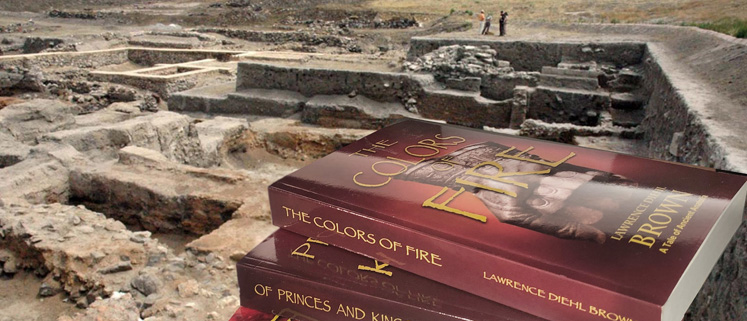Lawrence Diehl Brown

The Benefits and Rewards of Historical Fiction
Published Feb 16, 2024. L Brown, author.
Historical fiction can teach the truth about the past in ways that an historian in a textbook would have to struggle with. Going beyond a mere description of events, a novelist can expose the reader to the inner lives and emotions of people in distant times and places, illuminating the untold stories in history, the courage, endurance, and determination that allowed ancient peoples to rise to the challenges of their time. Through vividly drawn and memorable prose, the reader experiences a more complex truth, not found in conventional history books.
Historical fiction can offer a more inclusive vision of the past. It can recover stories that have been lost and fill in parts, making logical assumptions based on the writer’s knowledge of the history of the time. Whereas traditional history and biography are constrained by existing evidence, the novelist can lay bare the forgotten side, allowing readers to share vicariously with the emotions, struggles, and moral development of historical characters. We can perhaps more accurately judge their choices, motives, and their character.
In E. L. Doctorow’s words, “The historian will tell you what happened. The novelist will tell you what it felt like.”
Historical fiction can teach values.
Even after we know the facts of history, we continue to search for some sense and meaning in it. It can lead to a real understanding of others who have been wrongfully persecuted or suffered other injustices. At its best, historical fiction exposes the way that history wounds, challenges, and shapes people’s past and present. The novelist can develop stories that have been lost or forgotten. It can shine light on dissenting and radical perspectives that were relegated to history’s sidelines by more academic authors.
Fiction opens a dialogue between the present and the past and lets us understand history from a human experience. History books help us understand history, novelists help us feel it. The attitudes of people in the past may seem politically incorrect, racist, intolerant, or marginalizing to us. It can be a struggle for us to connect with ideas that are so far removed from the present. Getting to know the fictional characters in a novel is the closest we will ever get to understanding why they acted in the “ugly” way they did.
There are core values here, very different from modern values. People in ancient times were responding to social forces and agendas that are no longer as strong or pervasive in our own time. To truly understand how they felt, we need to experience something bigger than just a simple academic description of history. We need to experience it through the eyes, ears, thoughts, and feelings of the characters involved. A good novelist can capture the deeper truths about human existence that the historian may miss by reflecting a character’s reaction, struggle, and acceptance of contemporary values and norms. And this is done by bringing them to life on the page, right in front of our own eyes.
Historical fiction can be controversial.
The functions of historical fiction have shifted over time. Author’s in centuries past were responding to the attitudes and beliefs of their own time. They may have lived in a more repressive or un-informed period. They may challenge historical narratives that we take for granted or present views that we find unacceptable or even repulsive. We read these to gain an understanding of how people have changed over time, even though we find their beliefs and actions unacceptable in our own time. Historical fiction’s most important role today, in my opinion, is to touch us deeply by awakening our intellect and imagination and forcing us to come face to face with unpleasant truths and grapple with disturbing world views.

